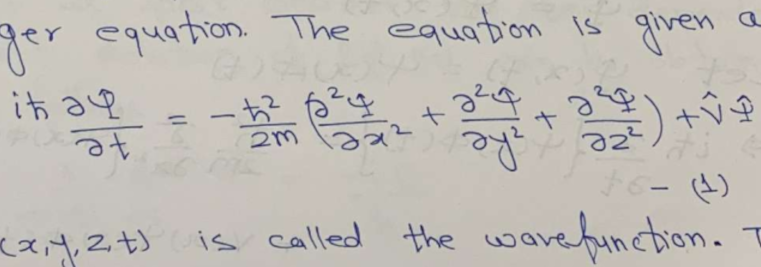







Courses
Advanced Mathematical Methods in Chemical Engineering (CHL7020)
This is a 3-0-0 core course for the masters students of Chemical Engineering. This course introduces the students to key analytical mathematics concepts which are of direct relevance to problem solving in research as well as practice. The following is a broad outline of the topics that will be covered along with the references.
Course contents:
- Linear vector spaces; linear independence and linear combinations; basis, dimension and span.
- Analysis of system of equations; null spaces and range spaces.
- Inner product spaces; normed and metric spaces; adjoint operators.
- Eigenvalue problems; ordinary differential equations in higher dimentions.
- Higher order and non-autonomous ordinary differential equations in higher dimensions.
- Sturm-Liouville theory; ordinary differential equations with variable coefficients.
- Partial differential equations; solution of transport equation.
- Solution of second order linear partial differential equations.
References:
- Linear Algebra by Gilbert Strang
- Sturm-Liouville Theory and its Applications by M. A. Al-Gwaiz
- Applied Partial Differential Equations by J. D. Logan
Chemical Reaction Engineering (CHL3030)
This is a core course for the UG students of Chemical Engineering with 3 h of class-room instructions every week. It introduces the students to the fundamentals of reactor design, while taking them through the kinetics of reactions, both catalytic as well as non-catalytic. The topics covered are given below.
Course contents:
- Mass and energy balances for reactive and non-reactive flow processes; batch reactor analysis and CSTR sizing.
- Development of kinetics and determination of kinetics parameters using batch and continuous reactors for single reactions.
- Plug flow reactor analysis; systems of continuous reactors; cascade reactors.
- Analysis of kinetics of non-elementary, complex and multiple reactions.
- Non-ideality in continuous flow reactors; temperature and presssure effects.
- Kinetics of heterogeneous catalytic reactions; determination of mechanism and rate limiting step.
- Mass transfer effects in porous catalytic systems.
- Analysis of multiphase gas-solid, liquid-solid and gas-liquid-solid reactors.
References:
- Elements of Chemical Reaction Engineering by H. S. Fogler
- Chemical Reaction Engineering by O. Levenspeil
- Chemical Kinetics by K. J. Laidler
Modelling and simulation (EEL2070)
This is a core course for undergraduate students enrolled in Engineering Science programme. The students have diverse disciplines, and the course is co-instructed by one faculty each from chemical engineering, mechanical engineering and electrical engineering. It has the lecture component of 3 h a week and a simulations lab of 2 h a week. The details of the portion instructed by me during Fractal 2 are given below:
Theory:
Stochastic modeling of processes
- Random processes, probability distributions, law of large numbers, central limit theorem
- Stochastic processes, classification of stochastic processes, master equation and its solution
- Fokker-Planck equation, random differential equations
- Examples of physical systems and case studies
Simulations
- Machine arithmatic, numerical errors, concepts of stability and convergence
- Solution of ODE-IVP's, Taylor, Euler and Runge-Kutta methods, multistep methods
- Solution of ODE-BVP's, discretisation schemes
- Solution of PDE's, numerical convergence and stability issues
Lab sessions:
- Simulation of single and multiple random walks, Monte-Carlo integration
- Simulation of ODE-IVP models
- Simulation of ODE-BVP models
We will be using MATLAB for the lab sessions. The following videos might serve as a good resource to get started.
Video 01
Video 02
Video 03
Video 04
Video 05
Video 06
Video 07
Video 08
Video 09
Video 10
Lab 01 problem
Lab 02 problem
Lab 03 problem